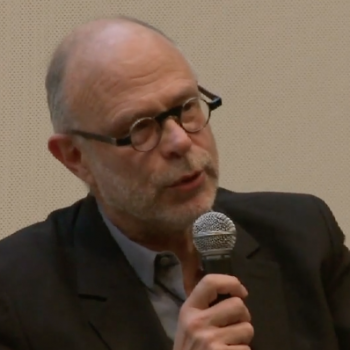 Denis Pelletier
Denis Pelletier
La réception du concile Vatican II entre théologie et histoire
La controverse nouée en 2005 entre théologiens et historiens, autour de l’analyse du concile Vatican II comme événement ou comme texte du genre littéraire « constitutionnel », relève d’une histoire intellectuelle. Mais elle participe aussi d’une histoire du catholicisme contemporain marquée par les débats qui se succèdent sur la façon de mettre en œuvre l’aggiornamento. Si la majorité des protagonistes a le souci de donner toute sa validité à un concile vécu comme « de transition » et « pastoral », les uns en font une lecture conservatrice, l’inscrivant dans le prolongement de Vatican I et d’un catholicisme intransigeant, critique de la modernité ; les autres soulignent son caractère radicalement innovateur, tout en relisant à partir des textes conciliaires l’ensemble de l’histoire de la révélation à travers la notion de « signes des temps ». La réception conciliaire devient ainsi un observatoire privilégié pour comprendre l’histoire d’un catholicisme qui se mondialise, dans le contexte d’un écart qui s’approfondit entre le magistère romain et l’évolution des mœurs.
The reception of Vatican II, between theology and history
The controversy that began in 2005 between theologians and historians over an analysis of Vatican II as event or as text in the ‘constitutional’ literary genre is a matter of intellectual history. However, the controversy is also part of a history of contemporary Catholicism marked by successive debates on how to implement the aggiornamento. While the majority of actors are committed to seeing the Council as one of ‘transition’ and ‘pastoral’, some see it as conservative, simply prolonging Vatican I and an intransigent Catholicism critical of modernity. Others emphasize its radically innovative character while utilizing the counciliar texts to reread the whole of the history of revelation through the notion of ‘signs of the times’. Conciliar reception thus is a privileged observation lens to understand the history of globalized Catholicism in the context of a widening gap between the Roman magisterium and evolution of moral sensitivities today.






Vous souhaitez lire l'article dans son intégralité
Vous êtes abonné à RSR
En préparation
Si vous n'êtes pas abonné à RSR
> abonnez-vous en ligne et téléchargez gratuitement toutes les archives
> ou achetez le numéro concerné pour le recevoir à domicile
> ou téléchargez immédiatement l'article (3 TTC ou gratuit si l'article a plus de 5 ans de parution)